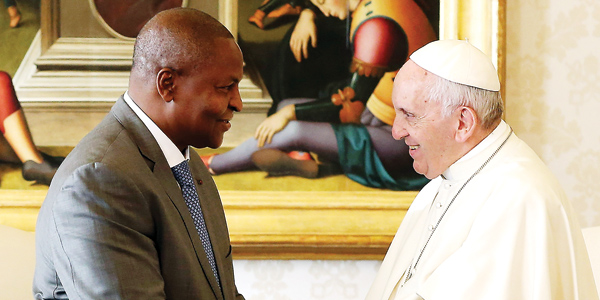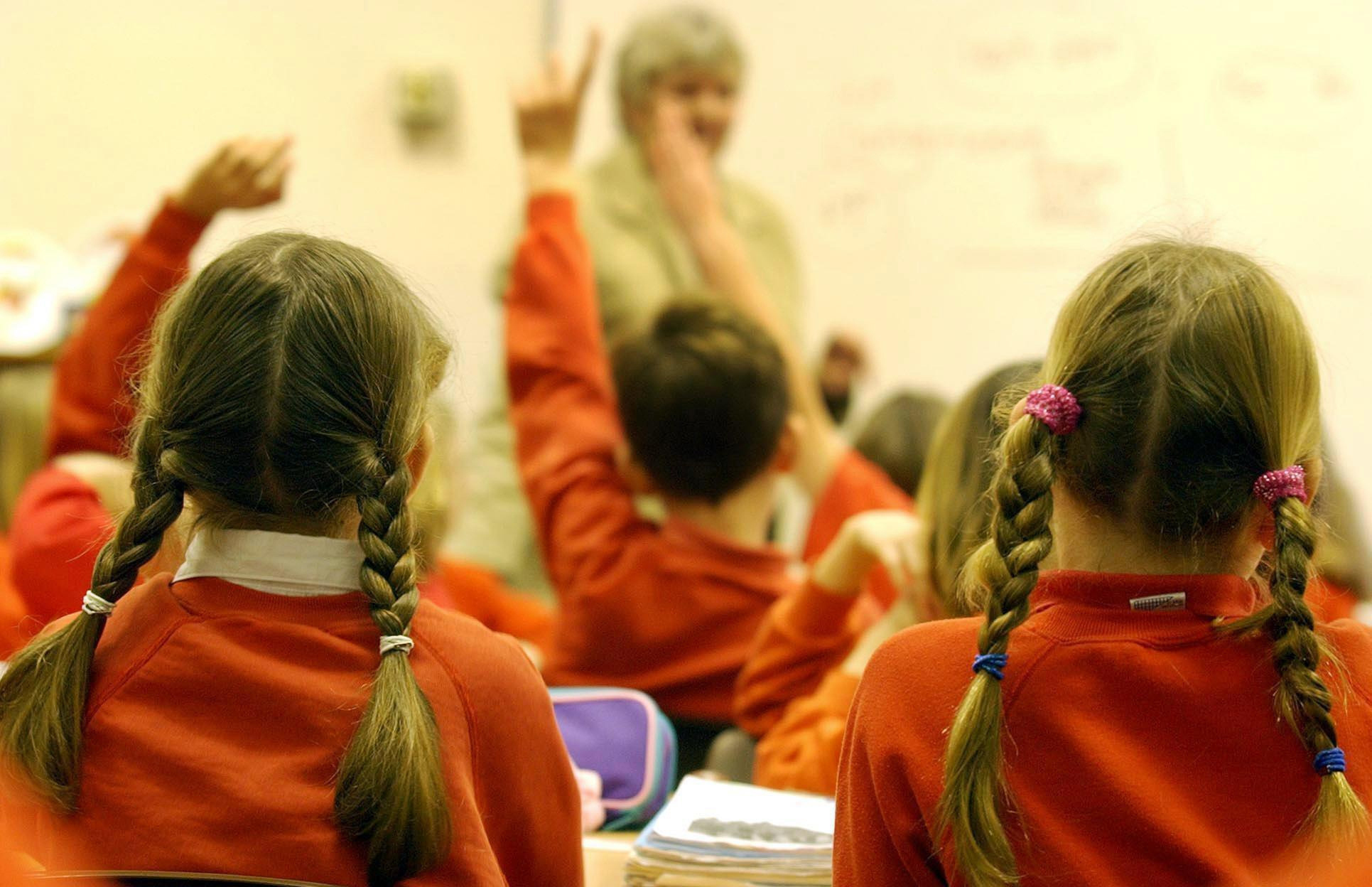The Government has decided it will not scrap the faith-based admissions cap on free schools, while pledging £50 million to enable an increase in grammar school places. There will also be an increase in voluntary-aided faith schools, which are allowed to select all pupils on a faith basis, where there is a demand.
The plans, justified by education secretary Damian Hinds on BBC Radio 4's Today programme, were criticised by Catholic church leaders. Catholic bishops of England and Wales have been campaigning for the government to fulfil the election manifesto pledge to lift the cap.
Hinds told Radio 4: "We reflected long and hard on these difficult issues... we have concluded that it right that we continue to have that cap."
The cap on free school faith admissions means these schools can only allocate 50 per cent of places on faith criteria, as a result of which the Catholic Church has not engaged with the free schools system over the last eight years. Under the system, parents, teachers, faith groups and others can get together to set up schools that are funded by central government and are free from local authority control.
Instead of lifting the cap on faith-based admissions to free schools, local authorities will now be able to open more voluntary-aided faith schools where there is a demand. These schools are allowed to select 100 per cent of pupils on faith grounds. They have to follow the national curriculum but can tailor religion classes according to their faith.
Archbishop of Liverpool Malcolm MacMahon, chair of the department for education and formation of the Catholic Bishops’ Conference of England and Wales, criticised the decision.
He said: “In their General Election manifesto, the Conservative Party made a commitment to the Catholic community that the unfair rule effectively stopping the opening of new Catholic free schools would be lifted. Today the Government has broken this promise, dropped the pledge they made to our country’s six million Catholics and ignored the tens of thousands of Catholics who campaigned on this issue.
“This U-turn disregards the Government’s own data showing the 50 per cent cap doesn’t create diversity, and sides with a vocal minority of campaigners who oppose the existence of Church schools. Catholic schools are popular with parents of all faiths, ethnicities and backgrounds, despite this we will remain barred from participating in the free school programme.
“The Catholic Church has had a long and positive relationship with the state in the provision of education and we see today’s decision as a regressive step in this historic partnership.
“We remain committed to our vision of education which consistently delivers high-quality schooling and contributes to the common good. Therefore we will continue to work with the Department for Education to address the urgent demand for new Catholic schools. This commitment means we will pursue the possibility of new Catholic voluntary aided schools despite the direction of travel for nearly a decade being towards academisation.
“Voluntary aided schools are an important part of the Catholic sector and it is significant that the Government has singled out Catholic education as an area to fund directly. This is rightly in recognition of the importance of Catholic schools to local communities and the contribution they make to the wellbeing of society.”
The Church of England, which has engaged with the free schools system in spite of the cap, welcomed the new plans.
Today's announcement is a response to the Schools that Work for Everyone consultation.
The Department for Education said: "There are many good or outstanding faith schools and more want to open. The Government will retain the 50 per cent cap on faith admissions for free schools but will develop a scheme to help create new voluntary-aided (VA) schools for faith and other providers to meet local demand, supported by capital funding. The VA route already allows for schools to apply to open with up to 100 per cent faith based admissions. The Department will work with local authorities to create these schools where they are needed, subject to a 10 per cent contribution from the provider to the capital costs.
"To support the measures to promote social cohesion announced in the Integrated Communities strategy, these schools – as all schools do – will continue to be expected to play an active role in their communities. This could include twinning with other schools and ensuring diversity on the governing board. Examples of schools already doing this include St Joseph’s Catholic Junior School in Leyton, which has a strong record of working with local Muslim, Jewish, Christian and non-faith schools."
Hinds said: "Children only get one chance at an education and they deserve the best, wherever they live and whatever their background.
"By creating new schools where they are needed most and helping all great schools to grow, we can give parents greater choice in looking at schools that are right for their family, and give children of all backgrounds access to a world-class education."
In November last year the bishops urged the Catholic community to petition Justine Greening, then Education Secretary, to lift the cap. The bishops believe the cap contravenes Canon Law because Catholic children could be turned away on account of their faith.
Mr Hinds was educated at the Catholic grammar, St Ambrose College in Greater Manchester. In a Parliamentary debate in 2014 he said that the “well-intentioned” cap was inhibiting the creation of new quality schools to provide for the Catholic community.
There are 2142 Catholic schools in England, accounting for about 10 per cent of the national total of maintained schools. More than 823,000 pupils are educated in Catholic schools; 68 per cent of students are Catholic and 36 per cent are from ethnic minority backgrounds, according to the Catholic Education Service. About one in three state schools are faith schools, most of the remainder being Church of England.
Speaking to The Tablet last month, Archbishop of Westminster Cardinal Vincent Nichols said Catholic schools are more diverse than most and the assertion that the Church is trying to run schools that are monocultural or monofaith is totally untrue.
The former Archbishop of Canterbury, Lord Williams of Oystermouth was among signatories to a recent letter to the Daily Telegraph calling for the cap on schools to remain in place for fear that lifting it would damage “social cohesion and respect.” The letter, which was also signed by prominent atheists Professor Richard Dawkins and the Chief Executive of Humanists UK, Andrew Copson, said it was difficult to bring to mind a “more divisive policy, or more deleterious to social cohesion” than removing the cap.
A recent Tablet investigation found nearly half of all Catholic dioceses in England had no immediate plans to build new schools should the current “faith cap” on admissions be lifted, while a further five were monitoring demand.
The Tablet contacted every diocese in England where the cap applies and found that eight of the 19 had no proposals, including Hexham and Newcastle, Hallam and Brentwood, which said they currently have sufficient school places for Catholic children.
Three dioceses did not respond, while only one said they had immediate plans.
In 2016 the Catholic Education Service estimated a need for roughly 20,000 new school places, the equivalent of 35-40 new schools. Most of that demand is understood to be in a few dioceses, in East Anglia and around London.
Pic: File photo dated 03/12/03 showing young primary school children. Education Secretary Damian Hinds has announced that the faith-based admissions cap on free schools will not be scrapped. Picture by: Barry Batchelor/PA Wire/PA Images



 Loading ...
Loading ...